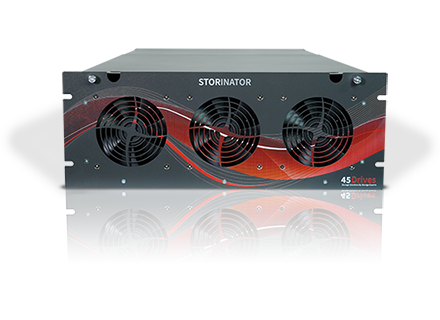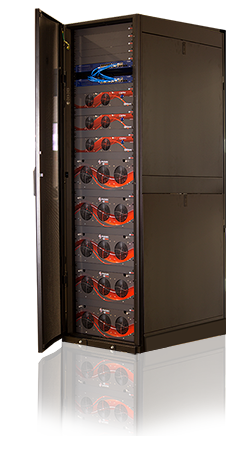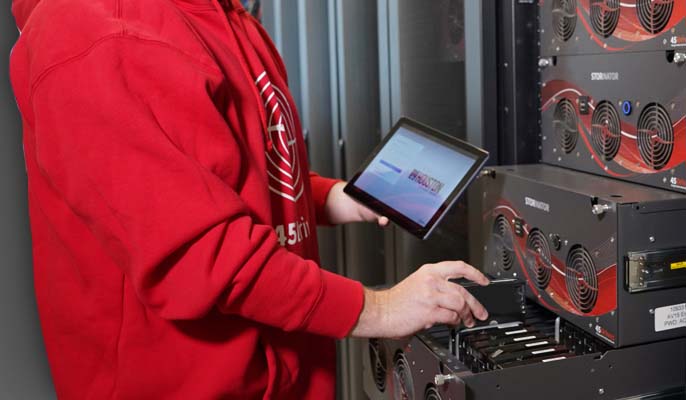Storinator Hybrid
By 45Drives
Combines HDDs and SSDs into a single system
Low latency and high throughput
High-Capacity
.png)
By 45Drives
Combines HDDs and SSDs into a single system
Low latency and high throughput
High-Capacity
.png)
Some data storage applications require greater performance than can be achieved with mechanical hard drives alone. Storinator Hybrid Servers can solve this problem. Hybrid servers combine both drive types into a single system, to give you the performance of SSDs, with the capacity of HDDs.
Quote Your Hybrid Server
The Storage Server that uses both HDDs and SSDs

Drive Bays: 12 HDD - 8 SSD bays
Dimensions: 25.34" x 17.12" x 6.86"
Maximum Capacity HDD*: 288TB
Maximum Capacity SSD*: 60.8TB

Drive Bays: 24 HDD - 16 SSD bays
Dimensions: 30.5" x 17.12" x 6.86"
Maximum Capacity HDD*: 576TB
Maximum Capacity SSD*: 121.6TB

Drive Bays: 36 HDD - 24 SSD bays
Dimensions: 36.23" x 17.12" x 6.86"
Maximum Capacity HDD*: 864TB
Maximum Capacity SSD*: 182.4TB

Drive Bays: 45 HDD - 32 SSD bays
52 HDD - 16 SSD bays
Dimensions: 37.5" x 17.12" x 6.86"
Maximum Capacity HDD*: 1080TB - 1248TB
Maximum Capacity SSD*: 364.8TB
* Assuming 24TB HDD's and 7.6TB SSD’s
Storinator Hybrid servers, equipped with HDDs, SSDs, and ZFS, enhance your storage performance. SSDs offer low latency and high throughput, while HDD arrays deliver fast throughput for medium and large files. ZFS adds advanced features like data integrity verification, snapshots, and efficient data compression.
Quote Yours

Clustering is a method of organizing multiple servers to work together as a single system to improve performance and reliability. Storinator Hybrids provide significant performance improvements in Ceph storage clusters. Data is stored on HDDs, and metadata and journals on SSD. This yields massive performance benefits in the right workloads. Talk to us to find out if your workload can benefit from Storinator Hybrids.
Ask Us About ClusteringAt 45Drives, we’ve reinvented the way enterprise storage and virtualization are delivered with our ‘New Enterprise’ model. Like legacy vendors, we provide full solutions - consulting, architecture, hardware, software, configuration, and support. But unlike legacy vendors, our open, non-proprietary model eliminates the risk of lock-in contracts.
